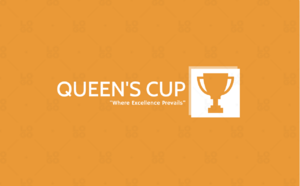Queen's Cup: Difference between revisions
No edit summary |
No edit summary |
||
| Line 24: | Line 24: | ||
}} | }} | ||
The '''Queen's Cup''' ({{wp|Dutch}}: ''Koninginnebeker'') (alternatively named the '''King's Cup''' ({{wp|Dutch}}: ''Koningsbeker'') if the monarch is male) is {{wp|Dutch}} football's annual match contested between the respective champions of the previous {{wp|Eredivisie}} and {{wp|Belgian Pro League|Eredivisie II}} seasons. Based heavily on {{wp|England}}'s {{wp|FA Community Shield}} match, the match's venue, since the game's foundation in 1957, has traditionally alternated between the {{wp| | The '''Queen's Cup''' ({{wp|Dutch}}: ''Koninginnebeker'') (alternatively named the '''King's Cup''' ({{wp|Dutch}}: ''Koningsbeker'') if the monarch is male) is {{wp|Dutch}} football's annual match contested between the respective champions of the previous {{wp|Eredivisie}} and {{wp|Belgian Pro League|Eredivisie II}} seasons. Based heavily on {{wp|England}}'s {{wp|FA Community Shield}} match, the match's venue, since the game's foundation in 1957, has traditionally alternated between the {{wp|Johan Cruyff Arena}} and the {{wp|King Baudouin Stadium|King Frederick Stadium}}, the largest stadiums in the country's northern and southern regions respectively. | ||
Organised by the {{wp|Royal Dutch Football Association}}, the match has normally been held to determine the "national winner" from the country's two separate but equally-ranked top domestic football leagues, with the winning team usually being crowned ''Nationale Kampioenen'' or "National Champions". In the meantime, proceeds from the game are otherwise distributed to community initiatives and charity organisations around the country, as well as to the other clubs in the {{wp|Eredivisie}} and {{wp|Belgian Pro League|Eredivisie II}}. | Organised by the {{wp|Royal Dutch Football Association}}, the match has normally been held to determine the "national winner" from the country's two separate but equally-ranked top domestic football leagues, with the winning team usually being crowned ''Nationale Kampioenen'' or "National Champions". In the meantime, proceeds from the game are otherwise distributed to community initiatives and charity organisations around the country, as well as to the other clubs in the {{wp|Eredivisie}} and {{wp|Belgian Pro League|Eredivisie II}}. | ||
Revision as of 08:01, 23 February 2023
 | |
| Organising body | Royal Dutch Football Association |
|---|---|
| Founded | 1957 |
| Region | Netherlands |
| Number of teams | 2 |
| Related competitions | Eredivisie (qualifier) Eredivisie II (qualifier) |
| Current champions | Ajax (18th title) |
| Most successful club(s) | Ajax (18 titles) |
| Television broadcasters | Eleven Sports |
The Queen's Cup (Dutch: Koninginnebeker) (alternatively named the King's Cup (Dutch: Koningsbeker) if the monarch is male) is Dutch football's annual match contested between the respective champions of the previous Eredivisie and Eredivisie II seasons. Based heavily on England's FA Community Shield match, the match's venue, since the game's foundation in 1957, has traditionally alternated between the Johan Cruyff Arena and the King Frederick Stadium, the largest stadiums in the country's northern and southern regions respectively.
Organised by the Royal Dutch Football Association, the match has normally been held to determine the "national winner" from the country's two separate but equally-ranked top domestic football leagues, with the winning team usually being crowned Nationale Kampioenen or "National Champions". In the meantime, proceeds from the game are otherwise distributed to community initiatives and charity organisations around the country, as well as to the other clubs in the Eredivisie and Eredivisie II.
Established in 1957, in line with the foundation of the Eredivisie the year before, its first edition was contested at the end of the 1956-57 season, with Eredivisie champions, Ajax winning the match 4-2 via penalty shootouts following a 3-3 tie against Eredivisie II champions, Royal Antwerp. Meanwhile, the current holders are also Ajax, whom defeated Club Brugge 3-2 to win their 18th title.
Statistically, the competition is dominated by four particular football clubs, namely Ajax, PSV Eindhoven, Feyenoord, and Anderlecht, which is notably the only one out of the four to come from the Eredivisie II. However, out of all of the competition's ten certified winners to date, five of them come from the Eredivisie while the remaining five otherwise come from Eredivisie II.